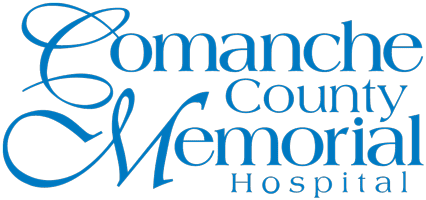Outpatient Surgery
With state-of-the-art equipment and friendly, highly skilled staff, we provide outpatient pre-operative, surgical, and diagnostic services all in the convenience of one easily accessible location.

The Outpatient Center at Comanche County Memorial Hospital is the most comprehensive healthcare facility in the region specializing in outpatient care.
Our outpatient services include:
- Outpatient Registration
- Laboratory Testing
- Diagnostic Imaging featuring the most advanced Open Air MRI and CT scanning in the area
- Surgery
- Women’s Imaging Center
- Educational Resource Center.
The Outpatient Center is an essential part of our commitment to the community. From the moment you arrive, you can expect to receive exceptional care and personal attention.
Outpatient Surgery
With improved technology and advances in anesthesia and pain control, many less invasive surgical procedures are now being performed on an outpatient, or ambulatory, basis. Common procedures that are now routinely performed on an outpatient basis include tonsillectomies, hernia repairs, gallbladder removals, some cosmetic surgeries, and cataract surgeries. Given the millions of procedures performed every year, complications from outpatient procedures are relatively uncommon.
Not all patients are candidates for outpatient surgery and some procedures still require hospitalization. A patient’s medical history and the advice of the surgeon and anesthesiologist are important in determining if the procedure is best performed on an outpatient or inpatient basis.
Outpatient Surgical Procedures
The most appropriate procedures for outpatient surgery are those associated with post-operative care that is easily managed at home, and those with very low rates of postoperative complications, requiring care by a physician or nurse.
Benefits of Outpatient Surgery
There are many advantages of outpatient surgery over traditional, inpatient surgery. These include the following:
- Convenience
The convenience of recovering in your home generally makes recovery time quicker and easier than an in-hospital stay. - Lower Cost
Since there are no hospital room charges, and related hospital charges, costs are much lower for outpatient surgery. Some insurance companies will cover certain surgical procedures only on an outpatient basis unless your physician certifies that you require a more intensive level of postoperative care due to an underlying medical condition. - Reduced Stress
In the majority of cases, outpatient surgery is less stressful than inpatient surgery. This is especially true for children who are afraid of being away from home. Most persons, moreover, prefer to recover in their homes rather than in the hospital. - Predictable Scheduling
In a hospital setting, emergency surgeries and procedures that take longer than expected can delay scheduled surgeries. An outpatient setting can generally stay within a set schedule since the procedures are more simple and routine.
Outpatient Surgery and Elderly Patients
Age, alone, is not a reason to disqualify a patient from having outpatient surgery. However, age does affect the reaction of elderly patients to certain anesthetic drugs, as short-acting drugs often take a longer time to be excreted by elderly persons. Elderly persons may also have more underlying medical conditions that could make an outpatient surgery riskier. It is important for an elderly patient to have a thorough medical evaluation before any surgery to determine the best surgical setting for that individual.
Going Home After Surgery
The scheduled time of discharge depends on the type of surgery, the anesthesia used, insurance coverage, and the policy of the surgery center. In general, most patients go home between one and four hours after outpatient surgery. The anesthesiologist can give you more specific information based on your case. Occasionally, it is necessary for a patient to remain overnight.
Responsibilities of the Patient upon Returning Home
Patients who undergo an outpatient procedure should have someone to drive them home and stay with them following the procedure. Most patients are restricted from driving for 24 hours after surgery. Patients often experience drowsiness and minor after-effects, such as muscle aches, sore throat, and occasional dizziness and headaches. Occasionally nausea may also be present. There may also be fatigue and discomfort for a day or two following the surgery. This discomfort varies depending on the type of surgical procedure performed.
Once at home, the patient must be able to tolerate any pain from the procedure, with adequate pain management. Written and verbal instructions for proper pain management will be given and the patient must be able to follow these instructions. A nurse or the physician will generally follow up these instructions to make sure the patient is recovering normally. The patient will also receive telephone numbers to call if there are concerns or emergency help is needed.
Contact Us
Phone
Address
Lawton, Oklahoma 73505




